The EU elections raise questions about the territorial integrity of the U.K., writes Johanna Ross.
By Johanna Ross
in Edinburgh, Scotland
Special to Consortium News
 They were the elections that weren’t supposed to take place, but wound up proving highly significant for British politics. By now the U.K. should have divorced itself from the EU under Prime Minister Theresa May’s promise of “Brexit means Brexit.” But with her leadership turning out to be not so “strong and stable,” Britain finds itself still part of Europe. As a result, on May 23, voters in the European Parliament election seized the chance to send a resounding message to traditional centrist parties that the duopoly that has dominated U.K. politics since World War II — Conservative and Labour — is no more. Change is afoot.
They were the elections that weren’t supposed to take place, but wound up proving highly significant for British politics. By now the U.K. should have divorced itself from the EU under Prime Minister Theresa May’s promise of “Brexit means Brexit.” But with her leadership turning out to be not so “strong and stable,” Britain finds itself still part of Europe. As a result, on May 23, voters in the European Parliament election seized the chance to send a resounding message to traditional centrist parties that the duopoly that has dominated U.K. politics since World War II — Conservative and Labour — is no more. Change is afoot.
Despite two years of disastrous Brexit negotiations with deal after deal blocked by Westminster politicians and considerable attempts by Remain (in EU) supporters, including former Prime Minister Tony Blair, to lobby for a second referendum on Brexit, the indefatigable Nigel Farage led his Brexit Party to decisive victory, claiming 32 percent of the vote. Taken at face value this result has reinforced the 2016 EU referendum result with a clear message: the U.K. wants out of Europe.
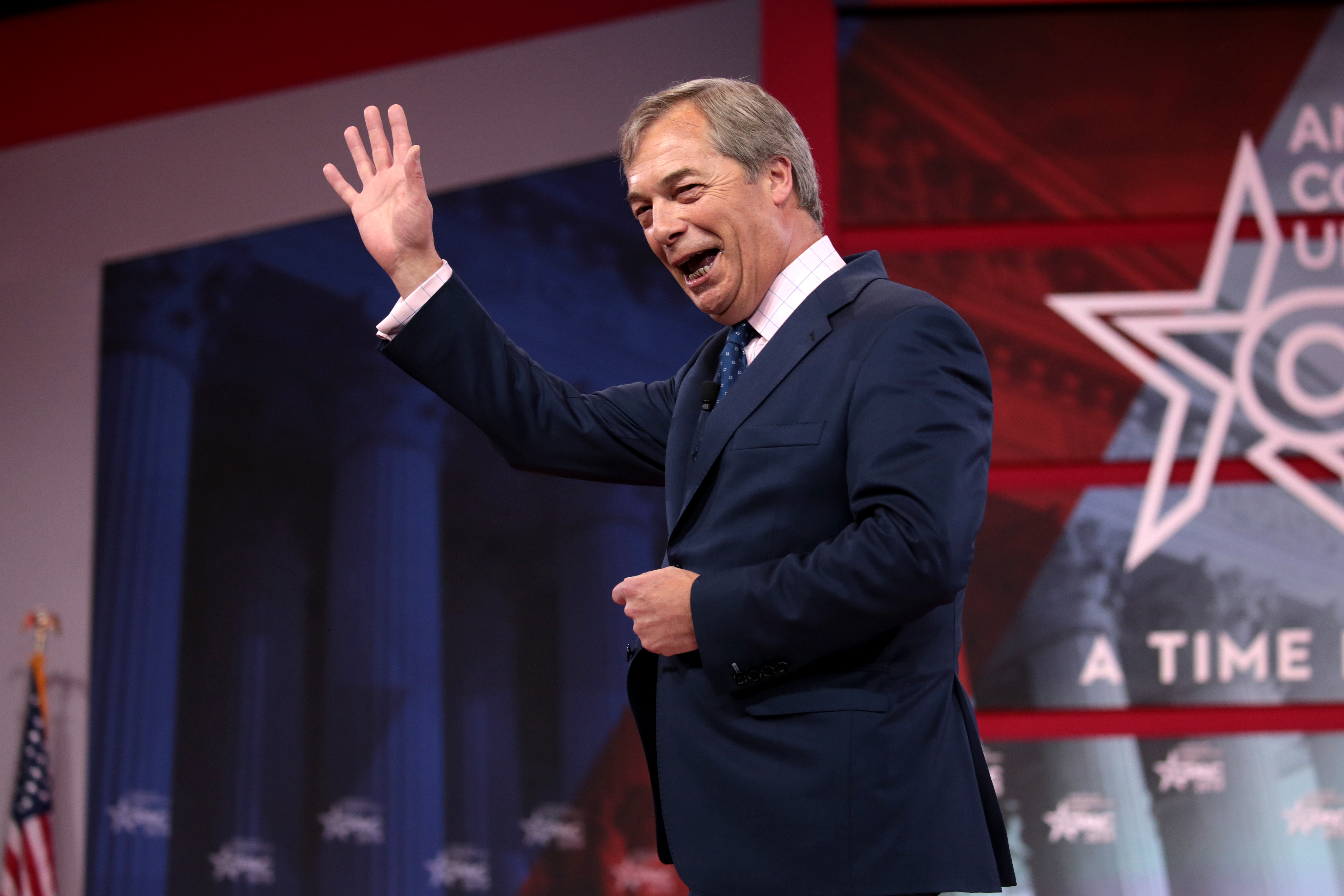
Nigel Farage: Led Brexit Party to decisive victory. (Gage Skidmore, CC BY-SA 2.0, Wikimedia Commons)
Scotland Always More Pro-Europe
But a map of the voting ratio tells a different story in Scotland. As predicted, it was a historic result for the governing Scottish National Party, which stood on a Remain platform, advocating a second referendum. Their 38 percent vote rose from 29 percent in the last EU election five years ago. The Brexit Party by contrast secured just under 15 percent. As Scotland’s First Minister Nicola Sturgeon concluded, Scotland has reinforced its pro-EU stance.
From the days of the Auld Alliance with France, long before the 1707 unification with England, Scotland has had its own relationship with the Continent. Links with universities such as Leiden in the Netherlands and trade links with Bruges, Belgium, and Gdansk, Poland, were in place long before similar connections were made with England.
Scotland has always been more pro-Europe and this election result emphasized that. It’s already being hailed as the necessary catalyst for a second referendum on Scottish independence or “IndyRef2” as it’s known closer to home. Nationalists have been calling for this since they were defeated 45 percent to 55 percent in the 2014 vote. But Sturgeon stuck to her guns, saying that the time was not right; as polls confirmed. However, less than a week after the EU election, the SNP has already published a new independence bill, declaring the EU election result a “fresh start” for Indyref2. A deadline has been set for May 2021.
Westminster can of course try to block any second referendum. At least three of the candidates to replace May have said they would. But that could court a serious backlash. More and more Scots believe that London is no longer interested in their views on anything, with the Brexit negotiations amply demonstrating this. As Scottish historian Tom Devine has commented, the Brexit talks demonstrated that any idea of a union based on “partnership and mutual respect” is “fraud and myth.” Under the circumstances, it is not far-fetched to envisage a Catalonia-style situation in which Scotland forges ahead with a second referendum in spite of Westminster.
In such an instance Scotland may get more support from EU allies than Catalonia did. Britain’s reputation in Europe, after all, has been severely damaged over Brexit, and the EU is, arguably, more likely to back a country interested in joining Europe, than one that has rejected it. In any case, it wouldn’t be the first time Scotland made such a move. In 1320 the Declaration of Arbroath was sent to the Pope, signed by 50 Scottish nobles and proclaimed Scotland’s independence.
Then there is the question of leadership. Sturgeon, in contrast to her Westminster counterpart, is widely trusted and respected in Scotland. Unlike May, she has provided the one thing that citizens value in a leader: consistency. Despite criticism for not calling another referendum to date, she stuck to her strategy – and it has paid off. The next campaign for independence is sure to be more effective this time around. It was widely agreed that the economic arguments for independence were the weakest link in the Yes campaign back in 2014. Aware of this, the Nationalists are publishing a guide on the subject, to be delivered to 2.4 million Scottish households this summer.
All indicators now are pointing to a no-deal Brexit, which will only boost the nationalists’ case. It could also potentially create chaos in another part of the United Kingdom—the island of Ireland.
Ireland’s Borders
Leaving without a deal would be the worst-case scenario for anyone who has any memory of the Northern Ireland Troubles. It’s feared that a hard border between north and south — which would occur if Northern Ireland, as part of the U.K., left the EU — with all the strict control and customs checks that the EU requires on its borders — could trigger a return to the days of bombings and shootings and jeopardise everything achieved under the Good Friday Agreement. It would be the ultimate provocation to Irish nationalist paramilitary groups who believe in a United Ireland.
A hard border, therefore, would be deemed a step back into the dark days of conflict, which no-one wants given all the lives that were lost to it throughout the 20th century. Indeed, times have changed and so has the political landscape on the Emerald Isle. The Irish Republic has benefited from EU and Eurozone membership and for many in the north has seemed like a beacon of economic prosperity. By contrast, Northern Ireland doesn’t even have a government — as the power-sharing agreement between the nationalists and unionists broke down two years ago — and the economic outlook is clouded by Brexit.
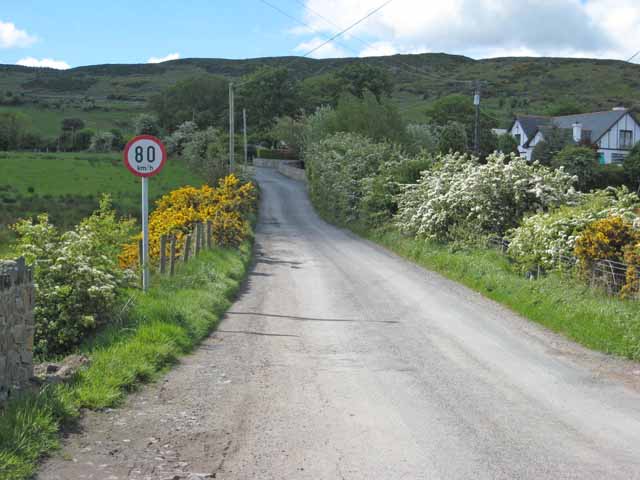
U.K.–Republic of Ireland border crosses this road at Killeen, marked only by a speed limit in km/h. Northern Ireland uses mph. (Oliver Dixon, CC BY-SA 2.0, via Wikimedia Commons)
These factors — together with a majority of Northern Irish voting to remain in the EU in the 2016 referendum — have therefore raised an idea that would have seemed unthinkable just a few years ago: that of Irish reunification. Earlier this year several U.K. cabinet ministers cited a “very real” prospect that a no-deal Brexit would lead to a vote on Irish reunification. Polls both north and south of the border have indicated increasing desire on both sides for this to happen. Granted, a united Ireland naturally brings its own set of obstacles and it’s not something to count on happening tomorrow. It is remarkable, nonetheless, that it is even being discussed.
All this raises the real possibility of the dissolution of the United Kingdom. Poor, inconsistent leadership from May, and a Westminster parliament that has put party politics and self-interest before the delivery of Brexit, has created the current crisis, which in turn has been a gift to Scottish and Irish nationalists.
What previously may have been considered a risky, unstable option for some voters — independence — no doubt now looks like a safer bet given the quagmire of Brexit. Voters now have to weigh up if it is in their interest to remain inside a union that no longer serves the Scottish people (some would argue never did).
As Robert Burns, Scotland’s 18thcentury bard, put it: “I have long said to myself, what are the advantages Scotland reaps from this so called Union, that can counterbalance the annihilation of her independence and her very name?” More than 200 years later, Scots are still pondering the same question.
Johanna Ross is a freelance journalist based in the United Kingdom.

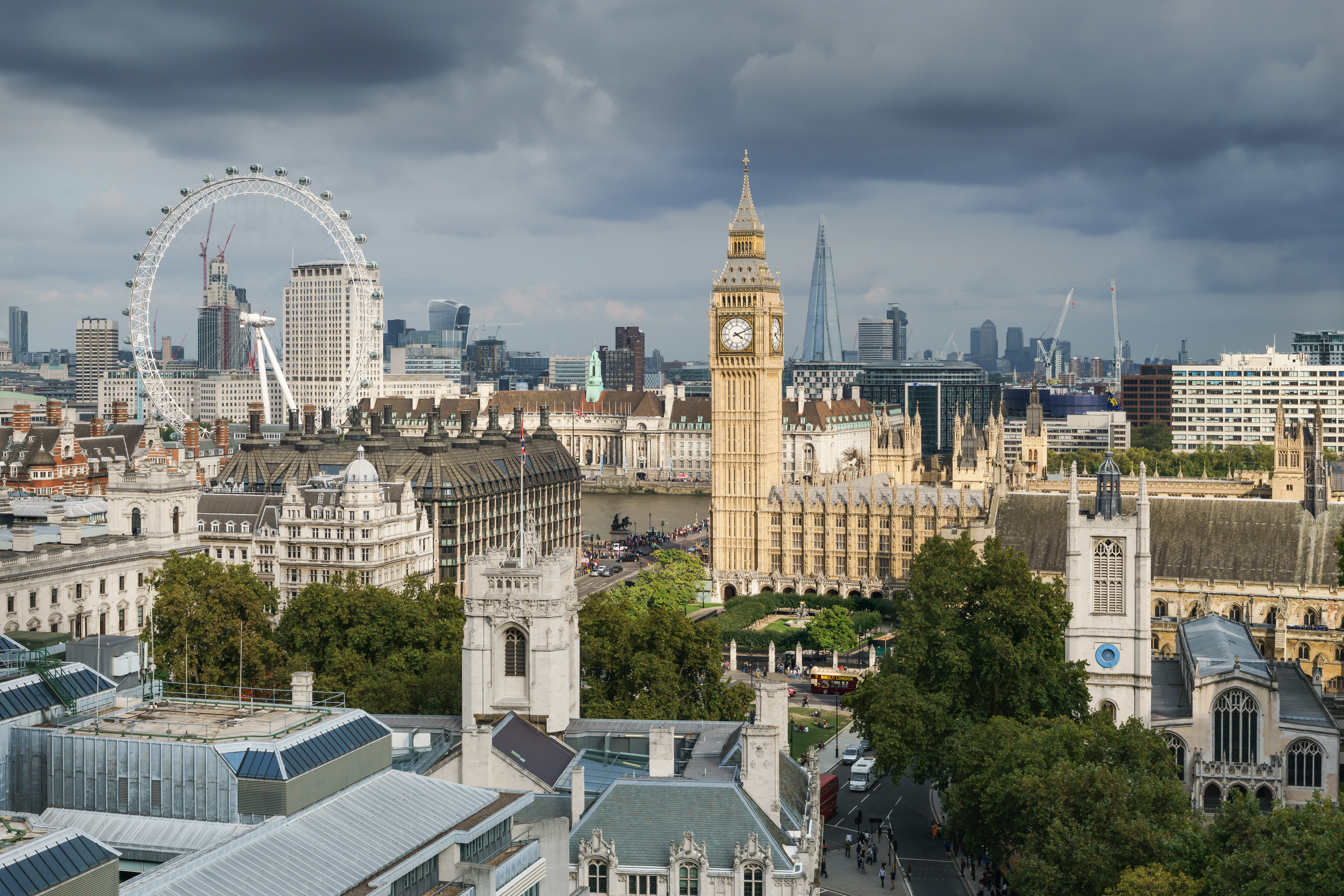
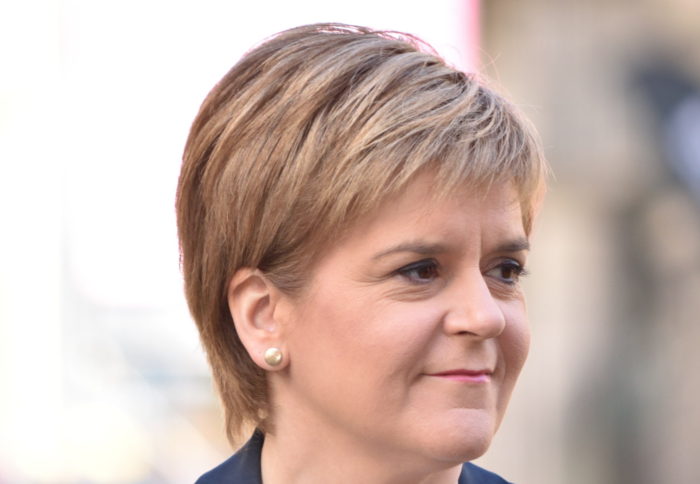
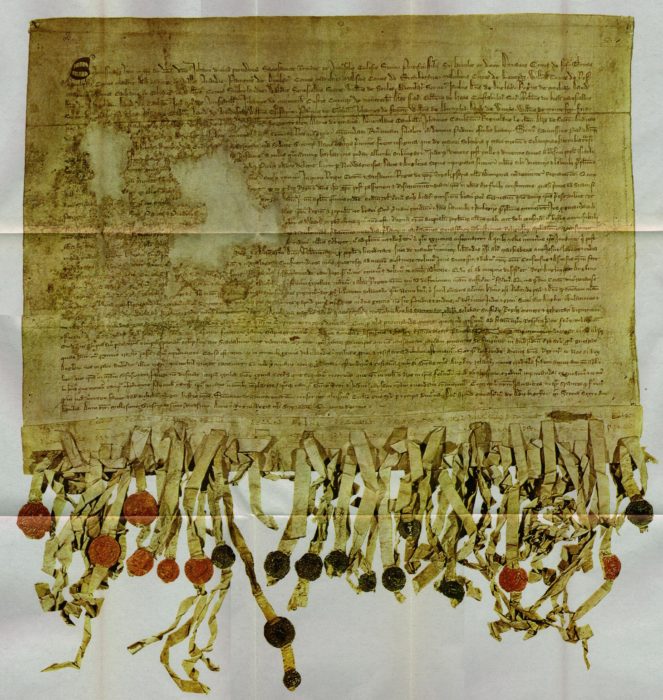
I don’t think it’s any secret that the SNP wants another referendum eventually and Brexit will give them a great opportunity and it will be harder to scare the Scottish voters about all they stand to lose by freeing themselves of Mother England. Of course, if there is a national election in a couple years it is a very real possibility that Labour and the Scottish National Party will be in a ruling coalition together so a referendum for Independence will have to wait a while. If Corbyn and Sturgeon do get power there could be a few changes. I would imagine that Scotland would get to keep more of it’s oil revenue and the Nuclear base issue would get a serous look. Scotland would get more rights anyway. By the time these things are resolved the EU may be dying of it’s own accord and Ireland may already be in the process of reunification . Unless of course Boris Johnson becomes Prime Minister and screws EVERYTHING up thereby expediting the process
Just as well, really.
This article claims that Scotland has always been more pro-Europe than the rest of the UK.
Not true.
In the 1975 referendum on EEC membership, Scotland was one of the most Euro-sceptic parts of the UK. While England returned a “Yes” vote of 67.8% to remaining in (and Wales, 64.8%), in Scotland, only 58.4% had voted “Yes”.
You speak sooth John ! Also below, where you point out the logic of SMALLER government.
A weird and not very useful article by someone who is clearly a Sturgeon fan with a soft spot for Farage. The vote for the Brexit party was a protest vote for a party without a platform but with a very clear right wing neo-liberal agenda.
The real threat to the duopoly in Westminster is from the Labour left, still struggling to take control of the party’s organisation and purge the Fifth Column which constitutes an anti Labour majority in the Parliamentary caucus.
Opposition to the EU among working people comes not from bigotry and ignorance but from the very clear understanding that Brussels is a neo-liberal project which holds democracy in contempt. The EU has the power to prevent a British government from pursuing radical egalitarian policies, including putting the commanding heights of the economy under public and democratic control, and the working class, first victims of Thatcher’s neoliberalism, know it. That is why they insist on Brexit.
As to the SNP it is becoming a very comfortable bourgeois party of the sort in which Hillary Clinton and Joe Biden would be very comfortable.
I remember daily newscasts of North Ireland violence while growing up in Germany. It’s time for the UK to dispense of the letter U in their name, and go back to boring ol’ England! Re-unite Ireland and let the Scots chart their own course!
Even better would be the Republic of England, the Republic of Wales, the Republic of Scotland and the Republic of Ireland, with open borders between them and no barriers to trade.
The monarchy is incompatible with democracy, and religion should be kept out of politics.
I believe that the writer’s discussion of many deals being voted down in Parliament is slightly misleading. The one and only Theresa May unchanging deal was defeated numerous times, and I never saw any significant attempt by Tories to bring a deal that stood a chance of approval before the House of Commons.
“which in turn has been a gift to Scottish and Irish nationalists.”
The writer is a bit confused, as are the Remainers in Scotland and Ireland, as is Sturgeon. The EU doesn’t accept “nationalists”. They get called dirty names, like “extreme right wing” and “populists”, and worse. Likewise the EU doesn’t accept “independence” and has complete financial control of a country by using the the euro to make each country a debt slave to the EU. Witness the poor Greeks. Witness Irish people being forced to pay for the debts of the private banks. At a time that this is crystal clear to anyone who can read about the plight of the poor and what’s left of the middle class in France, Italy, Spain, Greece as a result of EU control is to pretend that the EU is not a blatant force for the corporate fascists, banksters, warmongers, to control the populace of any “country” deluded enough to call themselves “independent” when still being in the EU. If Scotland wants “independence” then leave the UK and the EU, and issue its own currency. Same with Ireland and Northern Ireland, unite into one country and leave the EU.
Great! Now if we could only get our 50 states to secede from Washington! The bigger the bureaucracy, the less accountability to the public. It’d be a great way to stop an unaccountable empire in it’s tracks. Small is beautiful!
“Small is beautiful!”
Absolutely! I live in Scotland, and am highly amused that the SNP talks about independence, but wants to remain in the EU. I favor real independence. I want out of the EU and the UK. But even Scotland is much too big. I don’t want to be ruled from Edinburgh. I want to see Scotland split into at least 20 independent states. THAT would really bring about government that was more accountable to the public.
Well said John.
That Scotland wants independence from the UK but is apparently happy to remain a vassal State of the EU Politburo, is beyond comprehension.
Her majesty, the Queen did, some time ago, openly remark that she will be the last queen of England. Let us hope that should this come to pass, all those dazzling baubles (I thought she had caught fire), bedecking her neck and head during Trump’s recent visit, be returned to the African peoples. I suggest an international auction, where proceeds go into a United Nations controlled lock box and special fund, away from the grasping hands of corrupted politicians, corporatized charities, and or other government bodies (military juntas). This, for the furtherance of any African student who seeks to advance their education but lacks other means of escape such as; winning scholarships, grants, or possessing rare talents and ability (recognized genius) …This proposal is not intended to be a snide commentary rather, it serves as a reminder that state sponsored plundering, slave labor and other types of violence can, at least marginally, be rectified. At the same time I’m not hopeful that this or any similar recompensive action could ever reverse the ever widening gap between the haves and have not nations.
England, much like other island nations were forced by various circumstance(s) to perpetuate a brutality, of one sort or another, against domestic and foreign enemies- all for the sake of national survival. Examples; Emperors of Japan, communist Cuba, Queen Ranavalona of Madagascar and others.. I can’t escape the thought that “the damage has been done” or more appropriately a comment by Jesus Christ may suffice “the poor will always be with us”.
Great thought–though very morose.
Wish you would master the use of colons–as opposed to the misuse of semicolons.
Rudolph. I suppose I could use that software helper, grammarly? but heck no, I want my high school English teacher, rolling in her grave!
In this particular commentary, there’s no wiggle room for my mood, particularly when, tho reluctantly, I do see some logical sense to the Rumsfeld-Cebrowski Pentagon plan. Not that I’m advocating chaos as a deliberate strategy, rather I accept political chaos as a given or permanent condition, regardless of our foreign policy decisions towards second and third world countries
Greedy capitalists and their barbaric and destructive capitalism is the cause of Brexit and all other ills of the people and our planet Earth.
Brexit a recipe for devolution
It added to my knowledge I was delighted to get information at my finger tip
I am constantly baffled why people don’t make these very obvious and simple distinctions between a geographical location (Europe), and a governmental alliance (Union). You CANNOT take England out of Europe, but you CAN take the Union out of Europe (or Europe out of the union). The same thing obviously applies to the other Union (UK).
None of this needs to rule out trade, friendly relations, travel agreements, shared projects, or mutual cooperation.
Europe has existed long before and long after the European Union.
“Britain finds itself still part of Europe. ” Well…of course, Europe is a continent, EU is something else. EU fans try to make EU seem like a law of nature almost. It has only existed for some decades.
German propaganda has conflated the EU with “Europe”. Fuck the EU and fuck Germany.
The German citizens do realize that the EU is not what it was supposed to be. The elites think differently because they are the profiteers. The whole German government is nothing but the lackey to the US. Germany is still under US occupation but the elite seems to like that. It’s obedience to orders from the US makes me barf. The worst is the war mongering activities of the Mainstream Media against Russia. A famous TV moderator even regretted that the citizens are so very reluctant to take the Russian people for an enemy. There is no true information in the government-sponsored media. One has to look up foreign and German blogs, Russia Today, Sputnik or YouTube to get information.
Just a general comment on the website.
It’s a good thing the landing page, the one with the overview of articles, now has the author name in the synopsis.
Thank you.
It has had the author’s name on the front page for at least the past eight years.
Apparently, the other day, a few weeks ago, I got a different impression. After looking now at page 1 of 258, I do see that most article synopsises carry the author’s name (and do admit my statement above is undercut by it to a large degree) — but, not in all cases; I see two where it isn’t clear or isn’t mentioned:
this one:
Britain, Commentary, Ecuador, Human Rights, International, Legal, U.S., WikiLeaks
‘No One is Above the Law’ (Except the U.S.A.)
June 5, 2019 • 29 Comments
Julian Assange’s Australian lawyer and a European human rights attorney argue that the conduct of the U.S. regarding the WikiLeaks publisher blatantly disregards numerous laws.
and this one:
Britain, Intelligence, International, Legal, Sweden, WikiLeaks
More Good News for Assange: Swedish Court Blocks Extradition; US Says No Vault 7 Indictment
June 4, 2019 • 48 Comments
A Swedish court has blocked prosecutors’ request for a European Arrest Warrant forcing an interview with Assange in London, and Politico reports there will be no indictment of Assange on Vault 7.